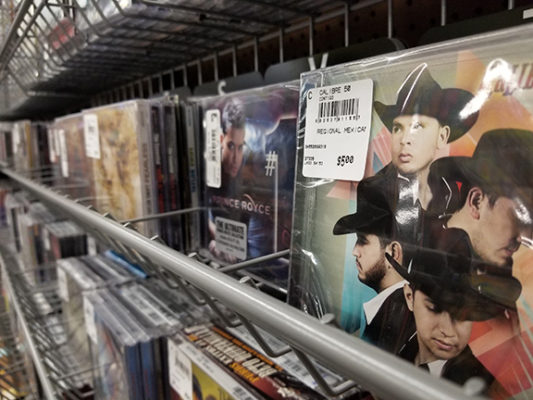The Dominican Republic recently decided to ban certain Latino music due to obscene language, sexual content, and lyrics that talk about drug trafficking and consumption. Critics in other Latin American countries are claiming that explicit music is having a negative impact on the their culture.
But some scholars say the content that offends one generation is just part of a normal evolution for popular music and society. Roberto Avant-Mier, a professor of communication at the University of Texas at El Paso specializing in popular music and film explained that music and society have a reciprocal relationship.
“I know for a fact music has an effect on society but also, society has an effect on music. I think it goes both ways in other words,” he said. “People can affect music, music can affect people. I think it’s all a relationship, like a back and forth relationship.”
Curtis Tredway, a music professor at UTEP, said explicit language and content has always been around and it is just becoming more mainstream as society’s standards are changing.
“The truth is, people have been using interesting language forever, maybe we don’t always use it on television, or records, or movies or things like that, but it’s always been there. And to say that it hasn’t is just putting on blinders. So, I think that artists today want to just be more real in what they do,” Tredway said.
Avant-Mier said that this is a reflection of how people’s perception changes over the years. “If you put it in a context of history, what we are seeing now at the moment would seem like it’s too much for us, but in 20 or 30 years, they will be like ‘that was nothing,’” he said.

Different genres of Spanish music, including Mexican regional, and Urban Latino like the ones shown in the photo have been banned in some countries due to their content. Photo credit: Roberto Saenz
Mexican regional music, like the corrido, is very popular in the border area. And while it doesn’t necessarily use strong language, the content dealing with topics like the drug cartels and violence, developed songs into what is known as “narcocorridos.”
Corridos were more political when the style began – telling stories about oppression by the government, Avant-Mier said. Now they reflect more popular culture of romanticizing outlaws.
“I think beginning in the maybe late 80’s, early 90s, it became about glorifying narco, narcotrafico,” Avant-Mier said. “If you look at narcocorridos now, they glorify violence, they glorify money, the drug trade. They’re too easily glorifying the drug trade.”
Mexico has forbidden many artists that sing narcocorridos from performing certain songs due to their content, as officials claim they incite violence and justify crime.
Tredway said that the public also plays its own role in refusing to support performers who go too far.
“With any kind of censorship, then it just gets to be, where do you draw the line. And there have been lots of cases that just kind of say, maybe every individual has to draw the line for themselves. If an artist is performing that kind of stuff, then you have to decide not to go to that concert,” he said.
The rise of urban Latino genres, like reggaeton, have become more vocal about previously taboo topics like sex. Avant-Mier said that can be seen a way for young people to act out against the standards of older generations and showing they won’t be repressed by society.
“The way you get kids to do something is to ban it. If you tell kids ‘Don’t listen to reggaeton because it’s too sexual,’ they’re gonna go for the very thing that the parents don’t want the to do because it’s a form of rebellion,” he said.
If parents are concerned about the impact of explicit lyrics on their children, Tredway suggests there should be a way for music platforms and retailers to communicate or to let the people know what content they are putting out for sale.
“Even though I’m pretty open-minded, as a parent, I want to know what my kids are listening to. And, so I think that there needs to be some kind of way to inform the adults that this is the content of this. Whether that’s a red flag, or something, I don’t know,” Tredway said. “There needs to be some kind of communication.”

